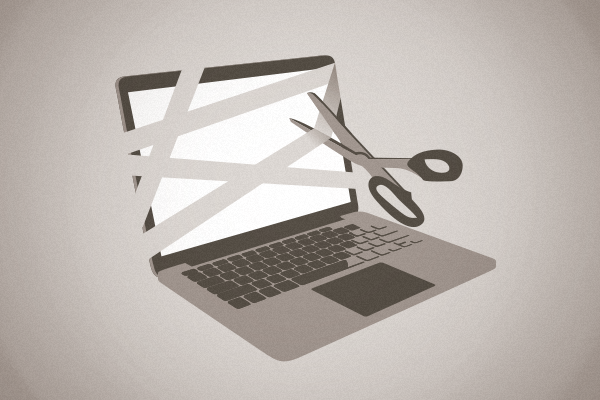If you’re using Atlas.md EMR, expect a significant boost in functionality. If you aren’t using the Practice Management/EMR software yet, sign up for a free trial here.
What’s new in Atlas.md EMR?

If you’re using Atlas.md EMR, expect a significant boost in functionality. If you aren’t using the Practice Management/EMR software yet, sign up for a free trial here.
What’s new in Atlas.md EMR?
Thanks to reporter Kelsey Ryan who shared a touching Atlas MD story in her recent report on our model of care. She focused on one of our patients, Michael Scheidt, who’s been enrolled in our practice since around the time we opened up. His wife was extremely sick and practically bedridden when he signed them both up for Atlas MD care. Dr. Josh was able to drive to their home and check up on her, which helped them tremendously. Even after the passing of his wife, Scheidt told the Wichita paper that he keeps coming in to see us because it’s “just so darn cost effective.” This was a real tearjerker. Thanks for your kind words, Michael.
Brian Gans is seeing family medicine in a new light. He shared his passion for direct primary care in a new blog post that’s making the rounds in our online community. This first sentence is simply prophetic. Brian writes, “When I first entered medical school, I was very attracted to family medicine as a discipline, but I wasn’t attracted to practicing in a model that limited me to less than 15 minutes of face time per patient…”
Seriously, how can we expect our nation’s current, and widening, doctor shortage to be abated when students are confronted with the grim reality of hamster wheel medicine? And don’t forget the red tape. It’s sticky, and will require the majority of med student’s future to offset. Brian, like many students, is aware that fee-for-service medicine requires 45 minutes of paperwork to get reimbursed for every 15 minutes of work. There’s little to no room for innovation in this type of environment.
We’re blessed to have been the thesis of Sam Jordan’s academic paper, “Medicine Shrugged.” Originally from Salina, Kansas, she’s now a freshman at George Mason University in Fairfax, Virginia and is majoring in Economics. She included email correspondences with Dr. Josh as part of her sources to build a case for free market medicine. Texts from Ayn Rand, Alan Greenspan and other intellectuals were cited alongside our personal experience.
Thanks to Sam, for letting us share her work with our supporters. We have to admit, we blushed when she compared us to Aluminum Company of America. ALCOA is known for its shining example of profit-maximization and price-minimization in Greenspan’s paper, “Trust.” It serves as a concise way of understanding our mission to cut the red tape. And yes, it’s true: we’re motivated to offer the best healthcare while making the most money possible. Sam had no hesitation in addressing that.
We’ve included the complete work below. Take a look. And if you’re interested in a digital copy of Sam’s paper, send us a line at hello[at]atlas.md …
Doug French curates and reviews books for Laissez Faire Books and also blogs at Libertarian Standard. He mentioned us recently in a review of Nathaniel Branden’s book Judgment Day: My Years With Ayn Rand. He came right out with a reference to the age of Obamacare, saying, “… The writings of Ayn Rand are inspiring some doctors to push back. A small, but growing group of doctors want their patients to pay cash. That’s right, cash. Their own cash.” Then he went on to mention our practice. We’re flattered to have Atlas MD’s name beside an inspirational figure like Rand. Her philosophy guided us to where we are today, practicing medicine, changing people’s lives, and changing the way other doctor’s can change their patients’ lives.
French even says that our practice “sounds like Rand’s free-market Shangri-La — Galt’s Gulch.” Gulp. That’s a sweeping vision to live up to. Although we’re in good company. French reminds us in his review that Ayn Rand has had tremendous influence on the likes of other innovative entrepreneurs and business leaders: BB&T’s John Allison, Whole Foods’ John Mackey, and Wikipedia’s Jimmy Wales to name a few. And we did release direct care’s first EMR, so we’ll admit that we’re ambitious. But our battle for common sense is ongoing.
ORDER JUDGEMENT DAY: MY LIFE WITH AYN RAND ON LAISSEZ FAIRE BOOKS
Read more
Drs. Josh and Doug demonstrate the Calendar feature of Atlas.md. Set appointments and reminders, and sync them with your devices.
VIEW ALL ATLAS.MD EMR TUTORIAL VIDEOS
Have more questions about Atlas.md? Send them to hello[at]atlas.md …
Want to try Atlas.md EMR? Sign up for free at Atlas.md/signup.

And we’re back. You can stream the new Atlas MD podcast on iTunes. We’ve had some recent speaking engagements, one of which was with the Wichita Rotary. Little known fact, our local Rotary Club is the seventeenth largest in the world! Who’d have thought?
Also, thanks Dr. Ray Siedel from Ruidoso, New Mexico, who stopped in to discuss his direct care transition that’s happening over the next six weeks. We have multiple doctors scheduled to come in every week for the next month. We’re always glad to talk shop, so let us know if you want to stop in.
Thank you, Todd Keefer (@FreeMktMonkey on Twitter)!
As is in flavor online, Todd Keefer recently composed his own Open Letter. His was addressed to Pennsylvania Insurance Commissioner Michael F. Consedine. Keefer mentioned Atlas MD as an example of a realistic alternative to the current insurance scheme. He (and many others) believes that insurance companies profit not from providing care but by clever manipulation that stems, grossly, from participants’ own ignorance.
What we as a nation are up against is an ingrained idea that insurance is the only way to get good care. Our practice’s philosophy is a reaction to this mindset. A mindset that enables those in power to stay in power. This power comes both through the industry’s own influence (we’re talking billion dollar companies in some cases e.g. WellPoint and other large-scale conglomerates), but also through a “benevolent” administration that believes more insurance will somehow fix a flawed system.
We’re curious what the paperwork verdict’s going to be with the recent ACA enactment. Assuming that people can sign up and that fee-for-service docs accept the new plans, will doctors be overwhelmed by additional paperwork? According to this survey from Anoto, who develops digital pen and paper technology, respondents said that “paper is still too embedded in the culture, that technology adoption is too expensive and that switching to an electronic system requires too much training and disrupts care delivery.”
Interestingly enough, these same survey respondents believed that the paperwork burden would increase once the Affordable Care Act was enacted.